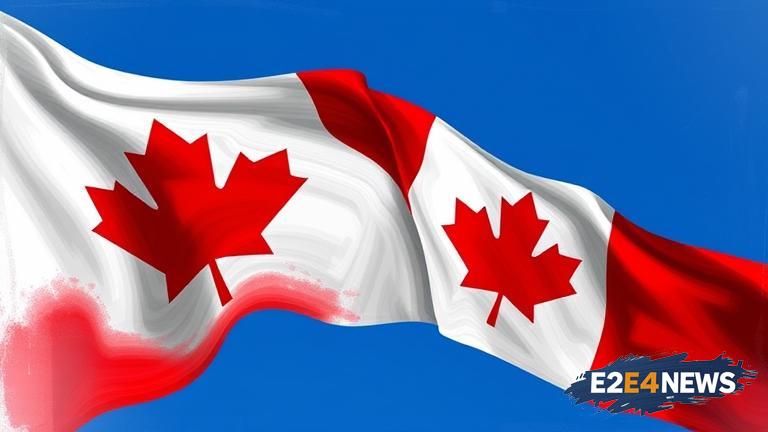In a groundbreaking development, Canada is expected to formally recognize Palestine as a sovereign state at an upcoming United Nations meeting. This move is seen as a major departure from Canada’s traditional stance on the Israeli-Palestinian conflict. The decision is likely to have far-reaching implications for the region and the global community. The Canadian government has been facing increasing pressure from human rights groups and activists to take a stronger stance on the issue. The recognition of Palestine is expected to be announced at the UN General Assembly meeting, where Canada will join over 130 countries that have already recognized Palestine as a sovereign state. The move is seen as a significant victory for the Palestinian people, who have been fighting for statehood and recognition for decades. The Israeli government has long opposed the recognition of Palestine, citing security concerns and the need for a negotiated settlement. However, the Canadian government has made it clear that it believes the recognition of Palestine is essential for achieving a lasting peace in the region. The decision is also seen as a major shift in Canada’s foreign policy stance, which has traditionally been aligned with that of the United States. The US has long been a strong supporter of Israel, and has opposed the recognition of Palestine. However, the Canadian government has made it clear that it will no longer follow the US lead on this issue. Instead, Canada will take a more independent stance, one that prioritizes human rights and international law. The recognition of Palestine is expected to have significant implications for the region, including the potential for increased economic cooperation and trade between Canada and Palestine. It is also expected to lead to increased diplomatic engagement between Canada and other countries that have recognized Palestine. The move has been welcomed by human rights groups and activists, who see it as a major step forward for the Palestinian people. However, it has been met with opposition from some quarters, including the Israeli government and some Canadian politicians. Despite this, the Canadian government remains committed to its decision, and is expected to announce the recognition of Palestine at the upcoming UN meeting. The recognition of Palestine is a significant development in the Israeli-Palestinian conflict, and is expected to have far-reaching implications for the region and the global community. It is a major victory for the Palestinian people, and a significant shift in Canada’s foreign policy stance. The move is seen as a major step forward for human rights and international law, and is expected to lead to increased diplomatic engagement and economic cooperation between Canada and Palestine. The Canadian government’s decision to recognize Palestine is a testament to its commitment to human rights and international law, and is expected to have a lasting impact on the region. The recognition of Palestine is a significant development in the pursuit of peace and justice in the Middle East, and is expected to be welcomed by people around the world. The move is a major step forward for the Palestinian people, and a significant shift in Canada’s foreign policy stance. It is expected to lead to increased diplomatic engagement and economic cooperation between Canada and Palestine, and is seen as a major victory for human rights and international law. The Canadian government’s decision to recognize Palestine is a significant development in the Israeli-Palestinian conflict, and is expected to have far-reaching implications for the region and the global community.





